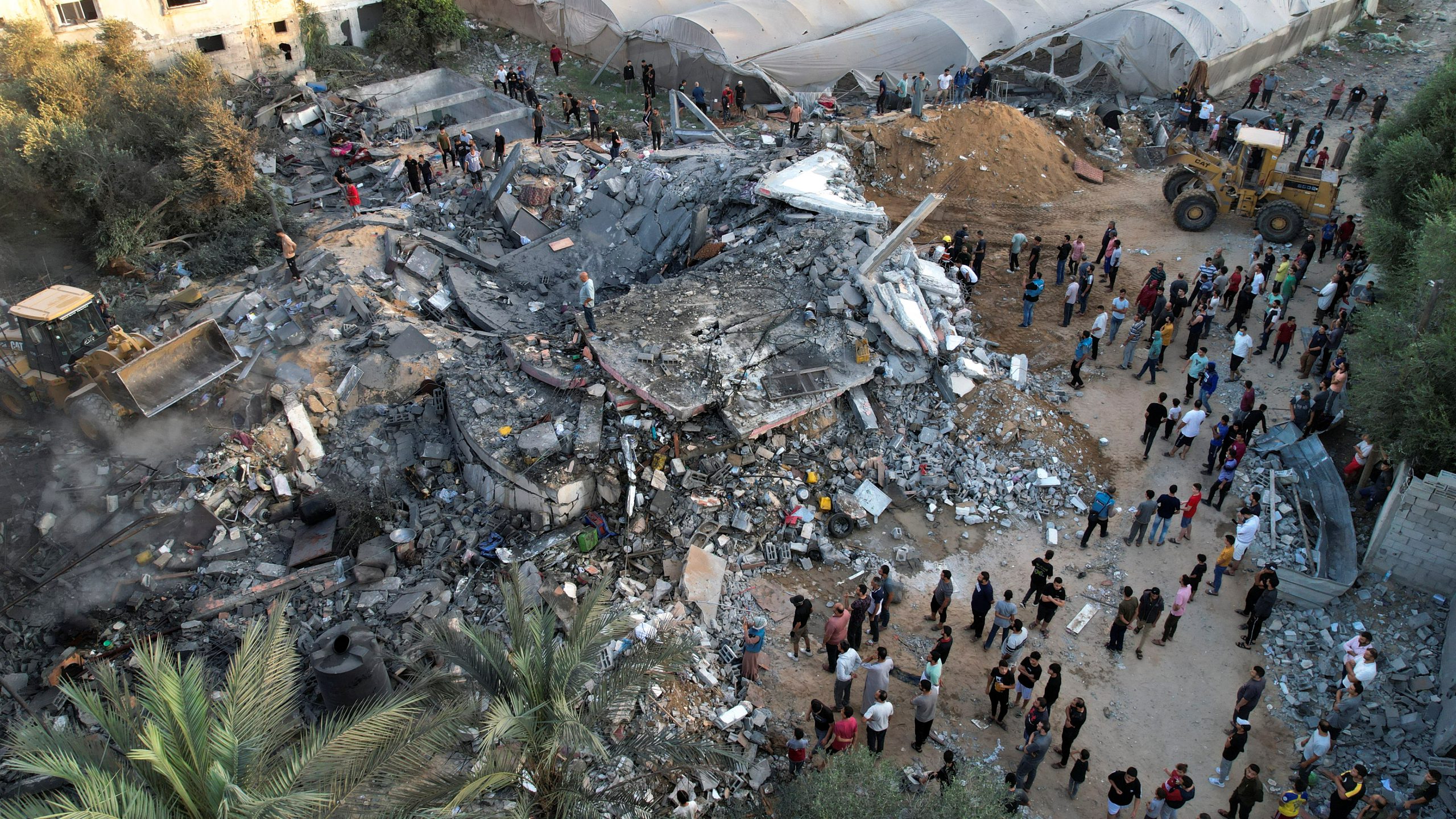China’s Mideast envoy urges guarantees for Palestinians
Beijing (Reuters) – China’s special Mideast envoy pinned the cause of the Israel-Gaza crisis on the lack of guarantees for Palestinian rights and urged greater coordination with Moscow in a meeting with his Russian counterpart in Qatar, a key go-between in the conflict.
In the first leg of his tour in the region, China’s envoy for Middle East issues Zhai Jun landed in Qatar on Thursday where he reaffirmed with his Russian counterpart Mikhail Bogdanov Beijing’s alignment with Moscow in their efforts to help de-escalate the Gaza crisis.
China and Russia share the same position on the Palestinian issue, Zhai was quoted saying after meeting with Bogdanov in Doha, a day after Russian President Vladimir Putin held talks with his “dear friend” President Xi Jinping in a rare meeting in Beijing.
“The fundamental reason for the current situation in the Palestinian-Israeli conflict is that the legitimate national rights of the Palestinian people have not been guaranteed,” Zhai said.
On Oct. 7, Hamas gunmen stormed into southern Israel from the Gaza Strip, killing at least 1,400 people. In response, Israel has retaliated with air strikes, putting the Gaza Strip’s 2.3 million people under siege.
A week later, Chinese Foreign Minister Wang Yi, while condemning “all acts that harm civilians” without naming Hamas, declared that “Israel’s actions have gone beyond the scope of self-defence.”
‘Root Causes’
The crisis has also increasingly put China and Russia in separate camps from the United States. President Joe Biden said he would seek extra funding, estimated to be in the billions, to help Israel fight Hamas.
Russia, which has ties with Iran, the Hamas militant group, major Arab powers as well as with the Palestinians and Israel, has repeatedly said the United States and the West have ignored the need for an independent Palestinian state within 1967 borders.
A Brazil-drafted U.N. Security Council resolution that called for a humanitarian ceasefire failed to pass on Wednesday, with the United States vetoing the resolution.
Twelve other members of the council voted in favour, while Russia and Britain abstained.
Washington traditionally shields its ally Israel from any Security Council action.
“China is deeply disappointed at the U.S. blocking the Security Council resolution,” said a spokesperson at the Chinese foreign ministry on Thursday.
A Russian-drafted resolution that called for a humanitarian ceasefire also failed to pass on Monday.
“The biased attitude of the U.S. is one of the root causes of the long-standing Palestine issue, and it acts as a catalyst for escalating the conflict when it erupts,” China’s nationalist tabloid, Global Times, wrote in an editorial.
Qatar
In Qatar, Zhai said China was ready to maintain communication and coordination with Russia in an effort to calm the Israel-Palestinian conflict.
The tiny Gulf state of Qatar has been an essential stopover for foreign diplomats seeking to mediate in the Israel-Gaza conflict in recent days, having direct communication channels with Hamas, which has had a political office in Doha for more than a decade.
A week ago, U.S. Secretary of State Antony Blinken visited Doha on his Middle East tour and told the Qatari prime minister that Washington was working to secure the release of hostages held in Gaza.
Blinken also urged Israel to take every possible precaution to avoid harm to civilians.



